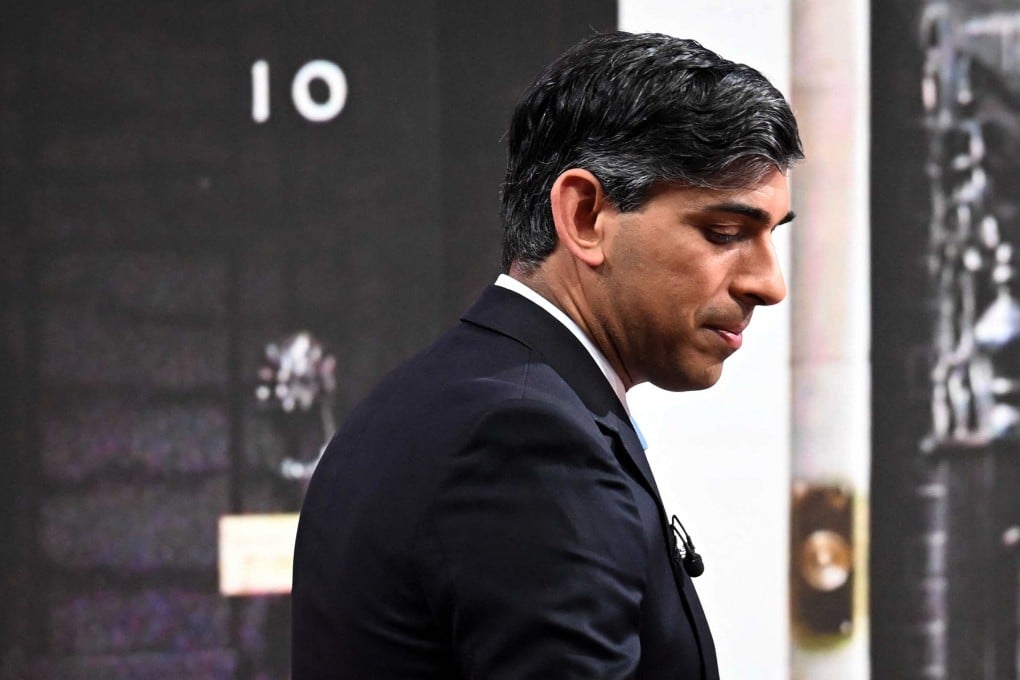Advertisement
In final days before the UK election, defiant Sunak insists he can stay in power
- Polls show Labour heading for a landslide victory and its leader Keir Starmer on track to become prime minister
Reading Time:3 minutes
Why you can trust SCMP
4

UK Prime Minister Rishi Sunak on Sunday dismissed suggestions that his party was headed to defeat in the July 4 general election, using one of his final televised appearances to defend the Conservatives’ record on the economy.
Sunak told the BBC that he believed he would still be in power by the end of the week, despite opinion polls that have found the Conservatives trailing far behind the opposition Labour Party of Keir Starmer.
“I’m fighting very hard,” Sunak said. “And I think people are waking up to the real danger of what a Labour government means.”
While he acknowledged that the past few years “had been difficult for everyone”, Sunak declared it was “completely and utterly wrong” to suggest that Britain’s place in the world has diminished since Brexit.

“It’s entirely wrong, this kind of declinist narrative that people have of the UK. I wholeheartedly reject,” he said. “It [the UK] is a better place to live than it was in 2010.’’
Advertisement